Podcast link building is becoming one of the essential SEO tactics for earning high-quality backlinks.
As Google favors trust over artificial links, getting mentioned on industry podcasts is a proven trust-building strategy.
This post will outline what podcast link building is, why it’s vital for modern SEO, the benefits and potential drawbacks, and provide a step-by-step guide to finding relevant shows, pitching hosts, preparing for interviews, promoting appearances, and tracking backlinks.
Whether you’re a marketer or have subject matter experts who can represent your brand, podcast guest appearances offer an easy way to organically boost your website’s authority and search visibility.
What is Podcast Link Building?
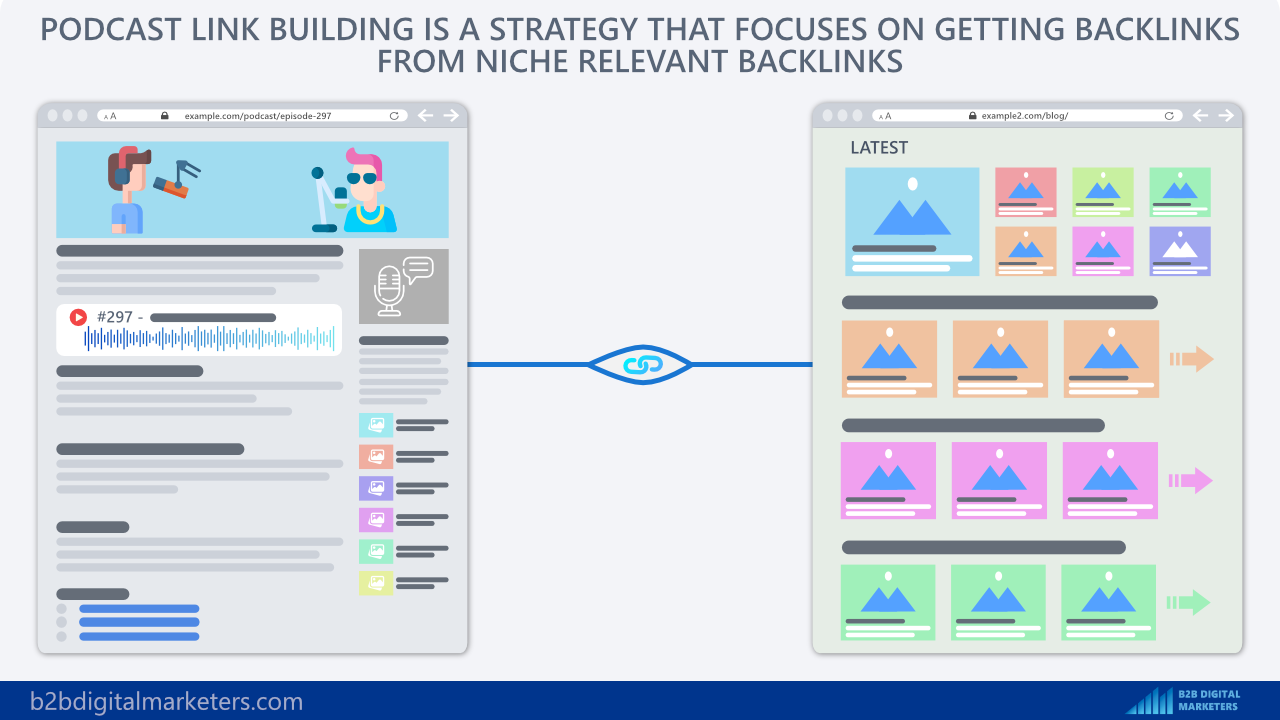
Podcast link building is an effective and easy link building strategy that involves appearing as a guest on podcasts in your industry to earn high-quality backlinks and increase your domain’s authority.
Unlike spammy link building practices, podcast link building creates organic, relevant links when the podcast host links back to your website from the episode show notes.
As Google continues to favor high-trust domains and reduce reliance on backlinks alone, earning brand mentions on industry podcasts has become an essential trust-building strategy.
Additionally, if you’re in an industry other than marketing, then the podcast should be done by your company experts, meaning that you don’t have to do the podcast.
Your goal is to only find the podcast opportunities and get your subject matter expert on it.
Which is a perfect link building strategy for lazy marketers!
Why Podcast Link Building is Essential for Modern SEO
In recent years, Google has placed more emphasis on E-E-A-T (Experience, Expertise, Authoritativeness, Trustworthiness) in their search algorithm updates due to the AI content writing tools.
This means earning high-quality backlinks is no longer enough – brands must establish themselves as trusted thought leaders to rank highly.
With over 500 million listeners and 5 million active podcasts globally and growing, podcasts provide excellent opportunities to boost authority and rankings. (Source)
Targeting shows aligned to your niche allows you to:
- Secure natural links and references from reputable sites that align with Google’s quality guidelines
- Showcase your expertise to both Google and engaged audiences.
- Efficiently build brand visibility and thought leadership.
Essentially, Google wants to see naturally earned contextual backlinks from reputable sources, not artificial or paid links. Podcast link building accomplishes this by leveraging high-authority podcasts relevant to your niche.
In addition, the brand exposure and thought leadership you establish give Google signals you are a trusted authority site resulting in a higher ranking.
As Google evolves to rely more on trust and authority, podcast link building provides the ideal boost.
Benefits of Podcast Link Building
Podcast link building offers several advantages that make it a worthwhile SEO tactic:
- Increased domain authority and trust by earning quality links from high-quality podcasts.
- Natural and organic backlinks that align with Google guidelines.
- Reaching a new engaged audience of podcast listeners.
- Enhancing perceptions of your domain’s authority and expertise.
- Increased brand awareness and visibility in your industry.
- Establishing thought leadership and industry authority.
- Relatively easy tactic to implement compared to other link building strategies.
- Good potential to bring customers to your business.
Potential Drawbacks
- It can be hard to persuade your leaders to join podcasts.
- While prospecting and outreach are easy, it takes time to prepare for the podcast.
- Limited control over when/if episodes with your links will be published.
- Need to create insightful commentary appropriate for podcast format.
How to Do Podcast Link Building?
At its core, podcast link building simply involves appearing on a podcast and obtaining a backlink from the show notes.
And it’s one of my favorite link building strategies, because it’s very easy to do, especially if the actual podcast needs to be done by a subject matter expert and not me. 😊
The only challenge is to get your senior subject matter experts to do podcasts for you, but later I will show you how you can do that too.
But to maximize its impact, here are the key steps:
Step 1: Finding Relevant Podcasts in Your Niche
Alright, the first step is to find a relevant podcast in your niche that you or your subject matter expert can attend to get niche-relevant backlinks.
Luckily this is super easy to do just by using Google.
To do that you can use any of these searches to find relevant podcasts for link building on Google:
- “[Niche] podcasts” – Search for your industry niche plus the word “podcasts” to find podcasts in your field (e.g. “marketing podcasts”)
- “Best [niche] podcasts” – Find ranking lists and articles about the top podcasts in your industry
- “[Niche] podcasts guest list” – See recent guest names and backlinks on shows in your niche
- “Best podcasts for [niche] experts” – Discover podcasts that actively welcome expert guests
- “[Niche] podcasts for backlinks” – Specifically search for SEO/link building focused podcast options
- “[Geographic area] [niche] podcast” – Add a location term to find local podcast options
- “Podcasts for [job title]” – Target podcasts appealing to your ideal guest profile (e.g. “podcasts for marketers”)
- “List of [niche] podcasts” – Find indexed lists and directories of industry-specific podcasts
- “Podcast sponsorships + [niche]” – Uncover sponsor opportunities to potentially pitch yourself as a guest
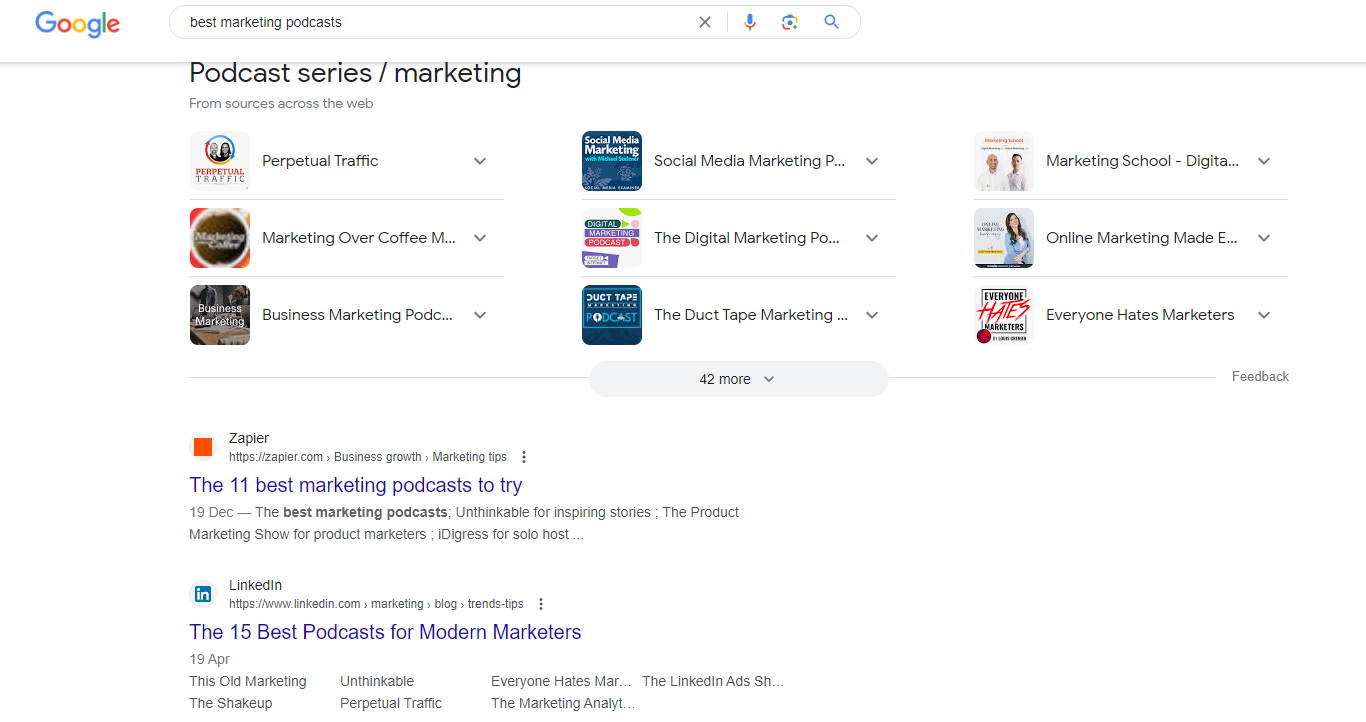
And just like this, you’ll find plenty of options that you can choose from.
I also recommend searching for geographically relevant podcasts, just to find more options.
Step 2: Vet Potential Podcasts
Once you’ve found a list of potential podcasts, you need to vet them to ensure they will provide value.
So here is a small checklist I always go through:
- Assess the authority of the podcast website. Prioritize podcasts on reputable, high-traffic sites in your industry. Use metrics like domain authority, organic traffic, and social media reach. You can use SEO tools such as SE Ranking.
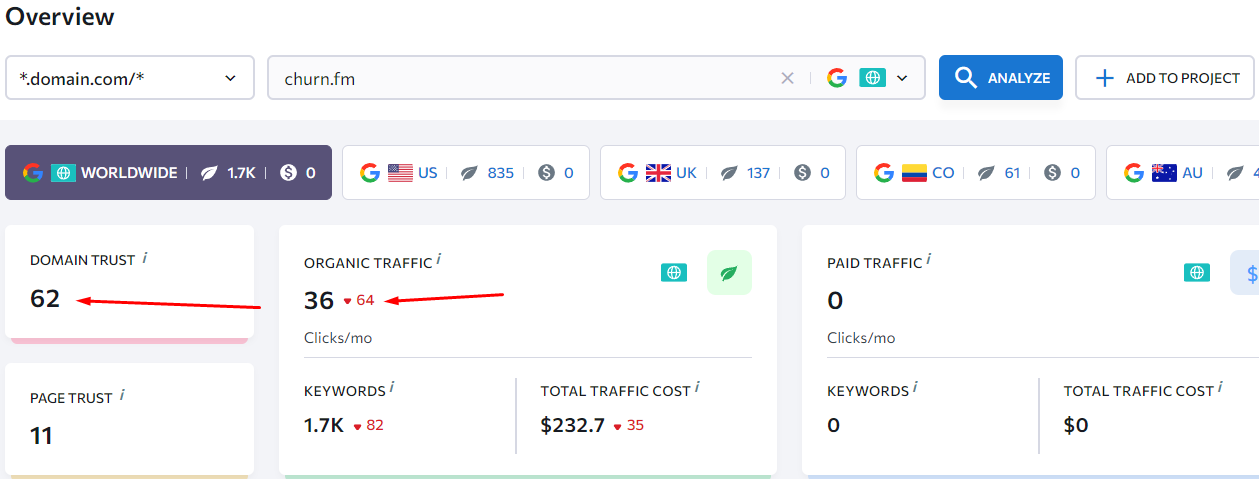
- Check for a consistent publishing schedule. Avoid podcasts that are published sporadically or take months between episodes. Look for weekly or bi-weekly shows.
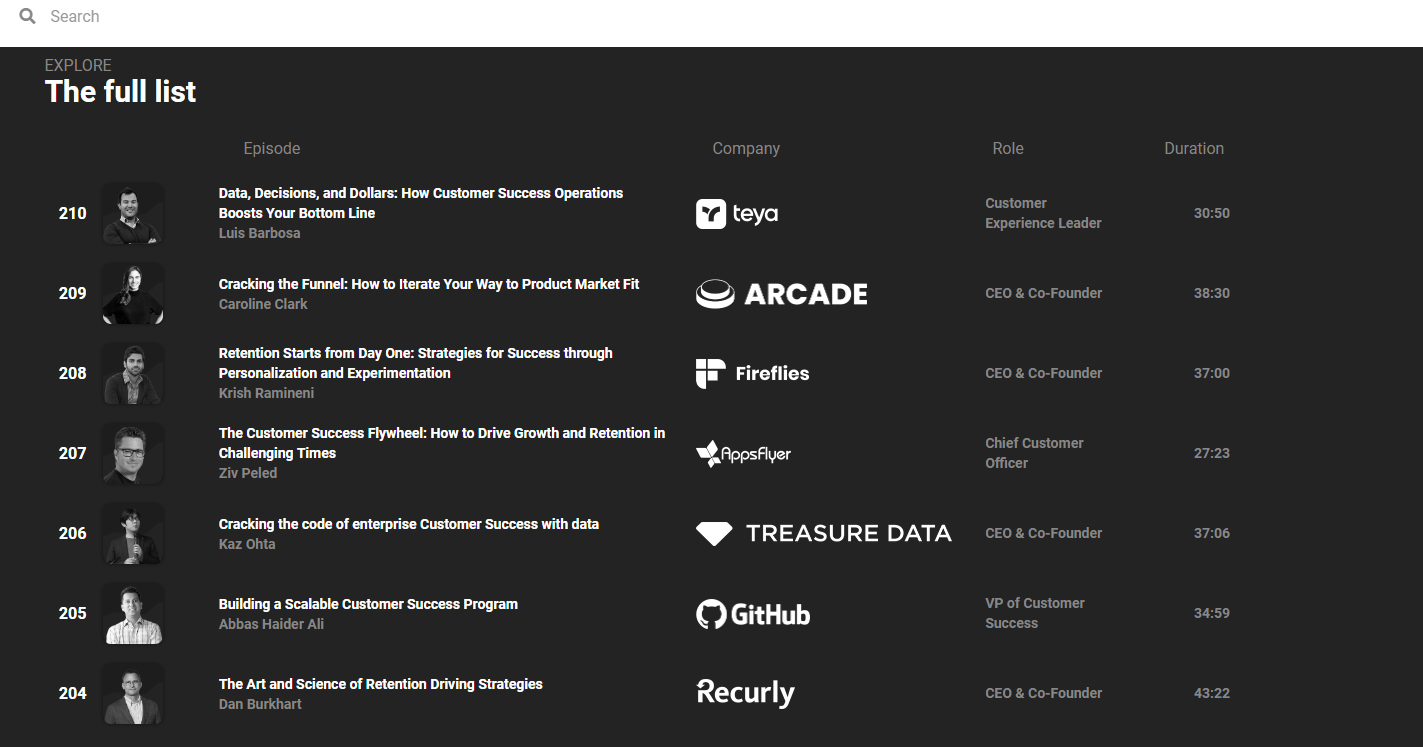
- Confirm they link to guest websites in their show notes and in a better scenario provide a dofollow backlink. The #1 goal is earning that backlink so verify they provide this for all guests.
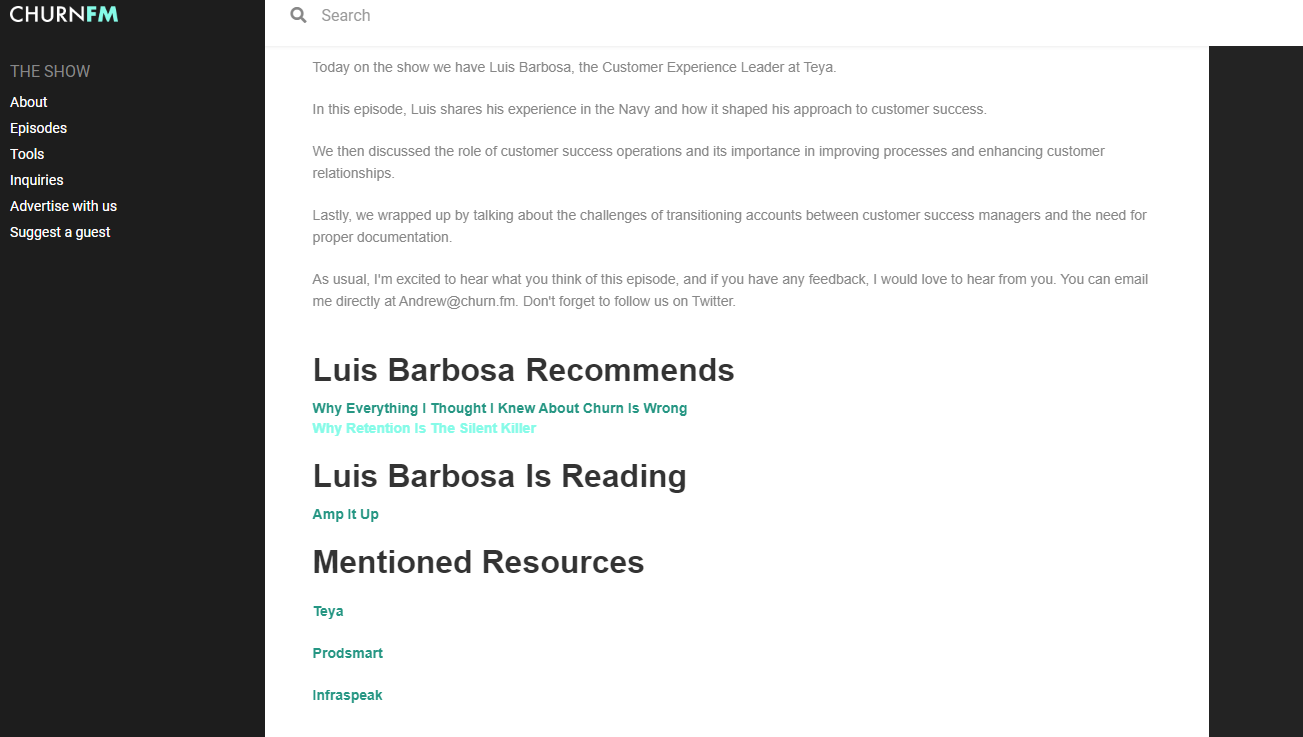
- Lastly, try to get on podcasts where your target audience hangs out. Like this, you can get backlinks and increase brand awareness for your business.
Thoroughly vetting podcast options will ensure you identify the shows offering the most SEO value in terms of backlinks, brand exposure, and authority building.
Trust me, there are enough podcasts, so the key is to choose the most relevant and most valuable.
However, in the beginning, you might want to go with the less popular ones before you can get on the more famous ones.
Step 3: Pitching to Podcast Hosts
Once you have a vetted list of podcasts it’s time to pitch your case!
Now, I won’t show you how to find email addresses to connect with the podcasts as in most cases, they provide email addresses where to get in touch with them, or sending your pitch to general emails works fine as well.
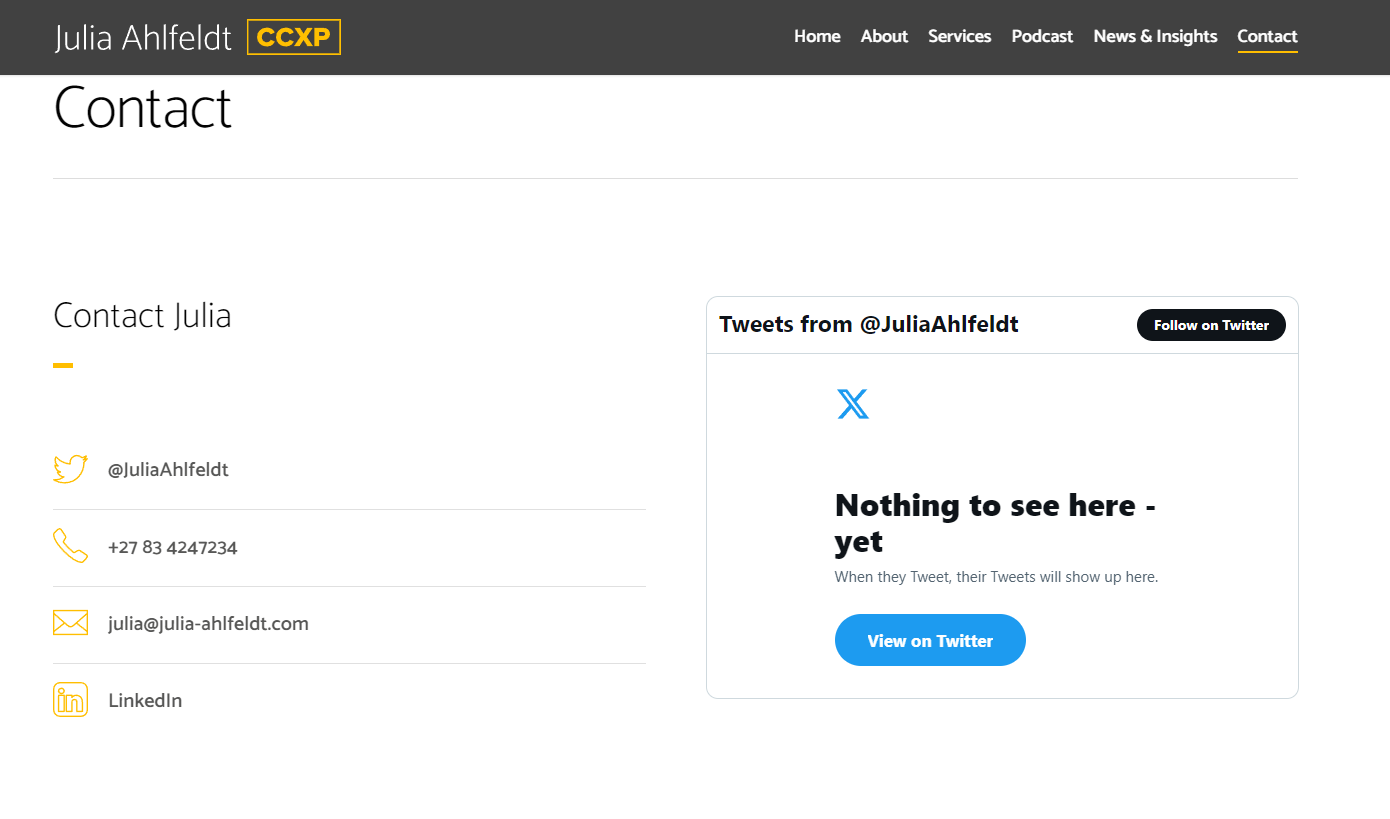
Or you can complete the contact form on their website.
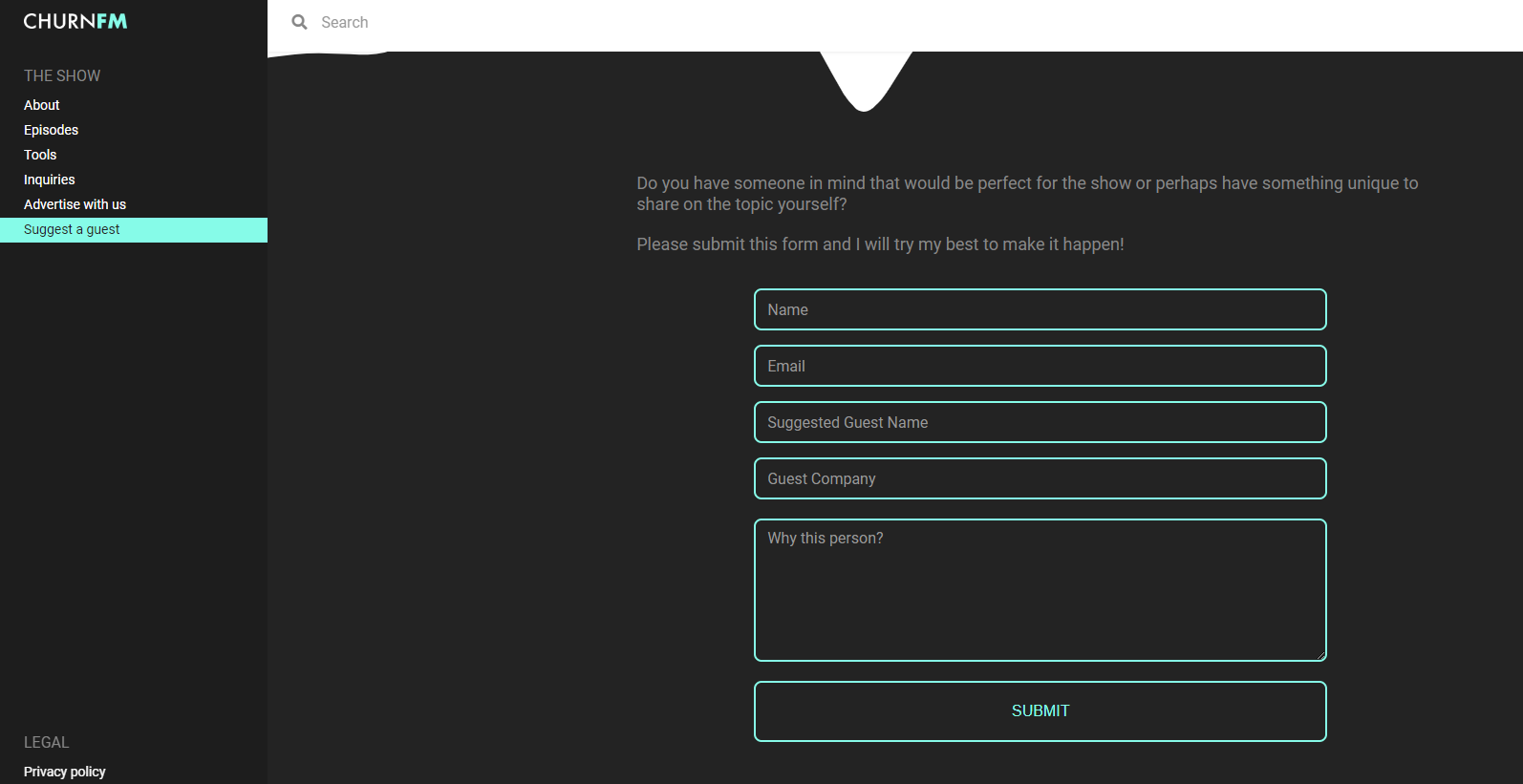
Otherwise, you can use email finding tools like Tomba to find email addresses or other link building tools.
But It all comes down to the pitch.
So here are some of my tips to craft the perfect pitch:
- Personalize your pitch to each host and show. Listen to their episodes and mention specifics in your email.
- Briefly introduce yourself and your expertise. Provide some background that qualifies you as a guest. Or your subject matter expert.
- Provide helpful links to social media profiles, past work, or anything to help them verify you’re legit or your subject matter expert.
- Highlight 2-3 discussion topics you can offer unique insight into. Align these with the podcast subject matter.
- Explain why this commentary would interest their audience. Tie topics back to the show and niche.
- If relevant, mention any impressive brand partnerships, media placements, or successes.
- Close with a call-to-action and thank the host for considering you. Offer to send more details or set up a call.
- Follow up if you don’t hear back within 1-2 weeks. Politely reiterate your expertise.
- Once booked, provide any materials the host requests like photos, bios, and talking points.
Here is how it could look like.
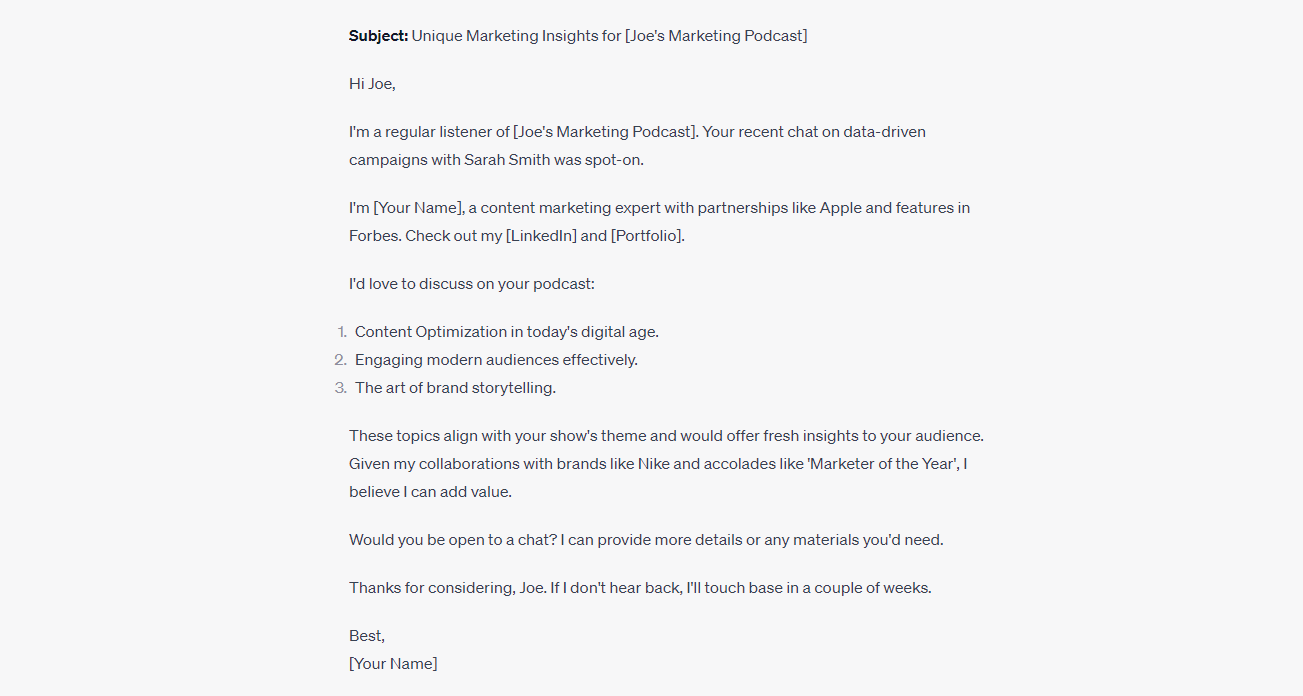
(Don’t worry to use ChatGPT, give it my tips, some context and you should be good in 5-10 minutes.)
Remember that this is not a number game and you won’t be able to attend many podcasts, so the key is to write compelling, targeted pitches, so you can get the host’s interest and secure your next podcast feature.
Sending 5-10 podcast pitches a week should be enough to land you an interview.
Also, adjust your approach based on the podcast format, audience, and goals.
Step 4: Preparing for the Podcast Interview
Alright once you have a confirmed podcast, it’s time to prepare yourself!
Preparation is key to ensure you deliver quality, informative, and even entertaining podcasts which in the future can land you even more podcast opportunities without the need of searching for them.
So here are some of the tips I recommend you when you’re preparing for podcasts:
- Review previous episodes and listen to get familiar with the hosts’ styles. Make note of any common questions, topics, or interesting points.
- Research the hosts themselves, including their backgrounds and areas of expertise.
- Brainstorm 2-3 big key talking points you want to discuss and stories/anecdotes to make them compelling and discuss them with the podcast host.
- A very important part for me is to draft conversational transitions to pivot organically between your points.
- I like to also define any niche terminology or acronyms for a general audience.
- The best thing you can do is to outline real-world examples, data points, or case studies to back up your viewpoints.
- Anticipate any tricky or controversial questions and how you would respond. Also, ask the host what they will be asking and what type of answers they would like.
- Have a short anecdote ready in case the hosts ask you to introduce yourself. Trust me, it’s harder than it seems to wing it.
- Rehearse out loud to perfect your cadence, tone, and pacing. Time yourself to ensure you don’t ramble.
- Lastly, print your talking points or draft notes to glance at during recording.
As I said, preparation is the key if you want to be confident, have fun, and provide engaging and insightful interviews, and present your brand in the best light.
When it comes to technical aspects I recommend you invest in a good-quality microphone. However, the latest Apple AirPods or similar ones are good enough to do podcasts.
Step 5: Post-Interview Promotion
After the podcast, you also want to make sure you promote it in order to maximize the SEO and branding value of your appearance.
Here are some of the good ways of promoting your podcast:
- Share the podcast episode on your social media channels, including LinkedIn, X, Facebook, etc.
- Publish a blog post/news that embeds the podcast audio, provides a text summary, and links back to the episode.
- Repurpose short audio clips into snackable social media or YouTube videos.
- Compile podcast appearances into a highlight reel for your website’s “About” page or the “Employee” page.
- Notify your colleagues, partners, investors, and professional networks about the discussion.
- Leverage paid advertising like X or LinkedIn ads to target existing audiences.
- Promote the episode in relevant communications like newsletters, groups, or Slack channels.
- Thank the podcast host online for having you as a guest.
Of course, you want to help the podcast host to spread the word about the podcast. It’s a win-win situation where both of you will benefit.
Step 6: Tracking Backlinks from Podcast
And the last step is to track the backlink from the podcast.
Sometimes, the backlink can be removed for any reason.
So, it’s important to track the backlink using backlink tracking tools such as SE Ranking.
SE Ranking Backlink Monitor tool allows you to create different folders for you to easily track your link building campaigns.
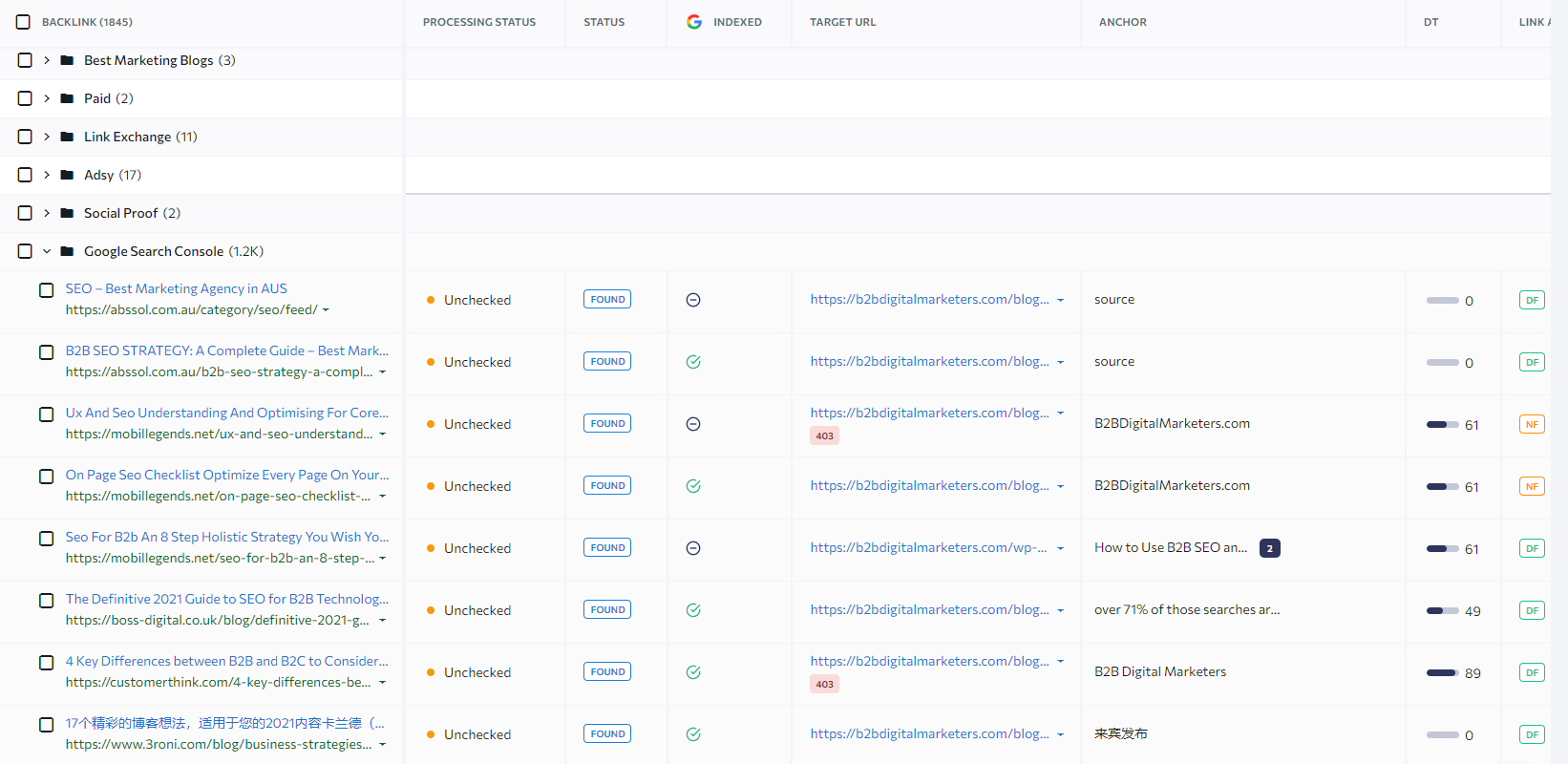
They provide a ton of information about the backlink and you can also add notes to each backlink such as the contact of the podcast host, any relevant information, and more.
Monitoring your backlinks allows you to keep an eye on your backlinks to ensure they don’t disappear and you don’t lose your valuable link juice.
So, every time you earn or build a backlink, make sure you track it!
Hosting Your Own Podcast for Link Building
Now, joining podcasts for backlinks is one thing, but actually owning one is totally another thing.
If we look at some of the popular podcasts across different industries such as:
Authority Hacker Podcast, a marketing/SEO/affiliate marketing podcast, they consistently earn high-quality backlinks.
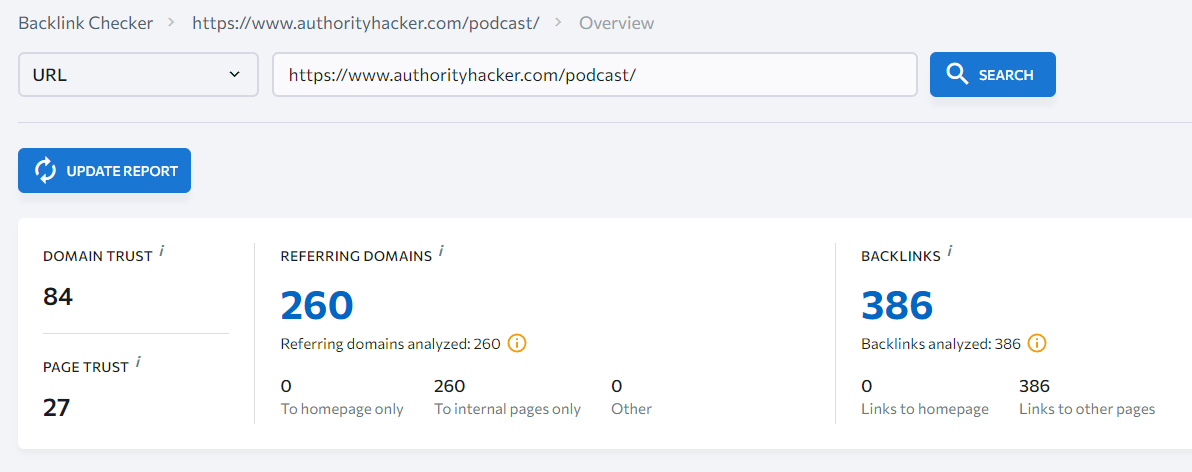
Joe Gardener Show, this gardening podcast is also bringing nice quality backlinks to their website helping them rank better.
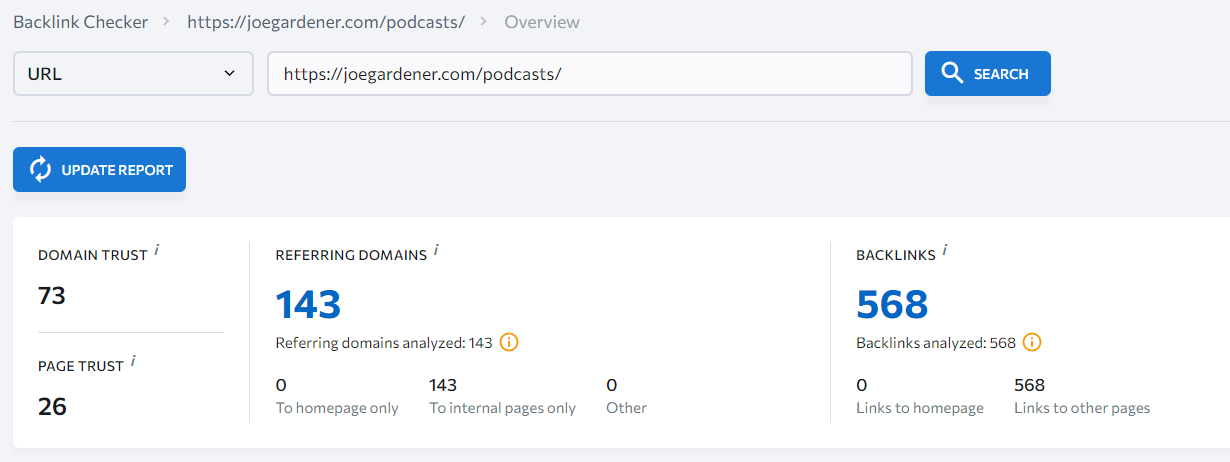
Or the Technically Legal Podcast, this legal podcast does earn high-quality backlinks as well from their shows.
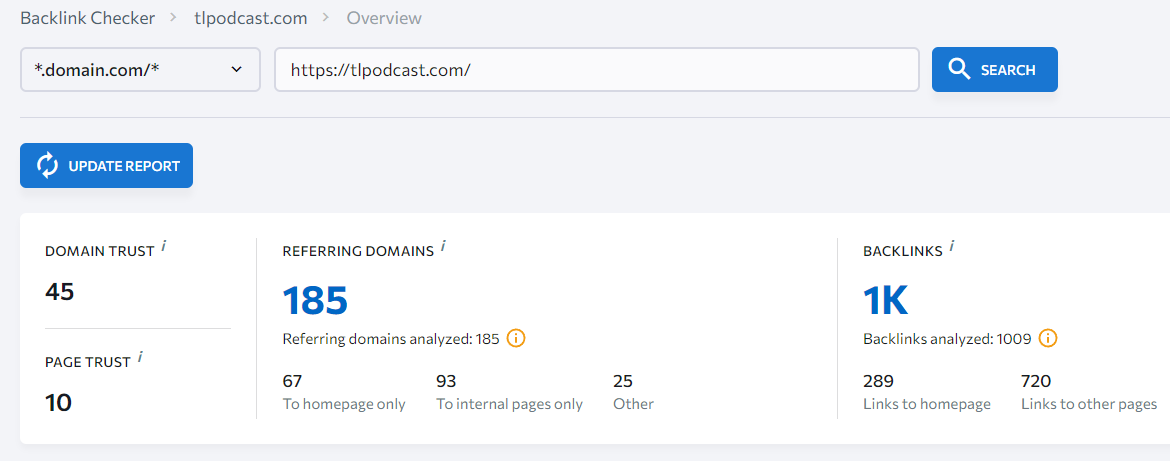
And there can be countless examples of podcasts being excellent link building strategies to earn high-quality backlinks.
In the end, you want to come up with a strategy that earns you consistently new backlinks without any active link building.
This is called passive link building and it’s arguably the best way to grow a website’s SEO revenue and traffic.
Of course, the amount of work required to run a podcast is nothing short of passive, but it’s an excellent way to grow a loyal following, boost brand awareness, and get more customers AND get organic backlinks.
Getting Management to Buy Into Podcast Link Building
One significant challenge can be convincing internal management like executives and subject matter experts to participate in podcasts for link building.
So here are some of the tips that worked for me in getting even one of the laziest executives to attend podcasts consistently:
- Focus your case on business growth, not just backlinks. Explain how podcast appearances can attract new customers and users.
- Try to get more stakeholders to attend podcasts, so they can rotate, reducing the frequency of their attending.
- Highlight competitors who are leveraging podcasts successfully. Use this to create a sense of urgency.
- Emphasize the branding benefits like thought leadership and PR value.
- Offer to handle all logistics – research, outreach, scheduling, talking points. Make it effortless for them.
- Suggest influential or high-reputation shows to get them excited about being featured.
- Start with more junior managers first to demonstrate success before asking senior leaders.
- Share case studies and stats on how to podcast links drove tangible traffic and conversions.
- Frame it as a low-risk way to experiment with emerging marketing channels and build skills.
With persistent yet strategic communication, you can convince internal stakeholders to prioritize podcast appearances by tying them back to business goals like higher revenue. The key is explaining how it benefits them.
In the end, stakeholders have responsibility for the company’s growth, through any means, and SEO and podcasts can be significant marketing channels to bring new customers to your business.
Therefore, your case should be focused on growing business, getting more customers, increasing profit, and this sort of thing.
So do not focus on backlinks. These are just means that can result in more customers for your business.
Conclusion
I wanted to share this information with you because, in current settings, podcast link building is an excellent way to earn high-quality backlinks, unlike more traditional link building strategies such as guest posting, link insertion, link exchange, or other ones.
Definitely, as AI is getting better and written content is getting easier to write, podcasts and videos are the future of marketing and boosting your online presence including SEO.
Support the B2BDigitalMarketers
Hey, Eduard here.
As a solo blogger with limited resources, I need your support to keep creating in-depth content like this. Please consider joining my Patreon community to help this site grow.
Your pledge – no matter how small – will enable me to dedicate more time to sharing actionable tips and strategies. With your help, I can take this project to the next level and really make a difference for other SEOs and marketers.
I would sincerely appreciate you joining me on this journey as a founding patron. Together, we can build an amazing resource hub. Hope to see you on the inside – thanks for your trust and support!
Related Articles:
- 8 Best B2B SEO Tools: Boost Your Digital Marketing Results
- Blogger Outreach: The Right and Not Spammy Way
- Best 10 Strategies to Get Edu Backlinks for Your Website
- SaaS SEO Strategy Guide: A Step-by-Step Checklist with Best Practices
Also, check out our SEO hub page to find all our SEO resources.
Disclaimer
This article was written by Eduard Dziak and may contain affiliate links. The following tools were used to optimize the article for the best user and search engine experience:
- SE Ranking for keyword research and on-page SEO optimization
- Surfer SEO for SEO-friendly content creation for users and search engines.
- Jasper AI for grammar correction and information enhancement.
The article is based on the author’s own experience and knowledge, drawn from both his own work and that of his clients, to provide the latest, proven methods.








